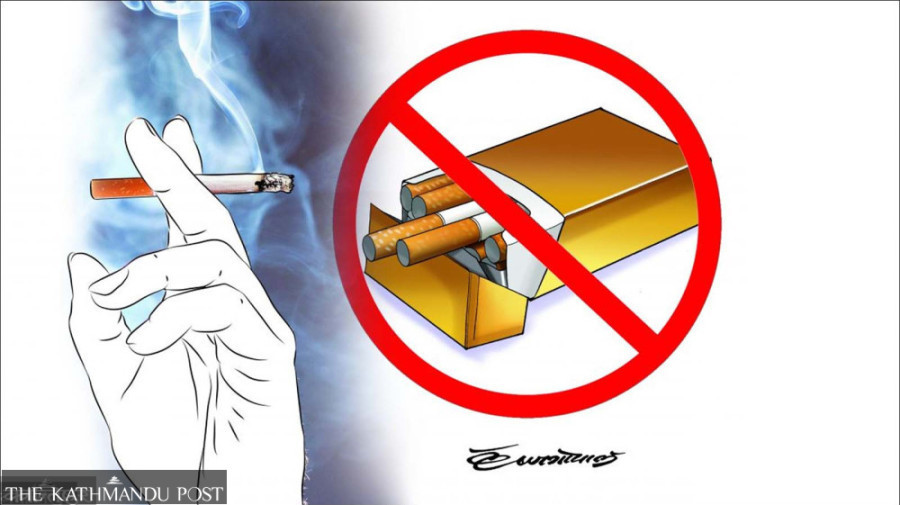Editorial
Worth another shot
The KMC’s new ban on smoking in public places is laudable. It should not be limited to publicity stunts.
Kathmandu Metropolitan City (KMC) has again announced a ban on the consumption of tobacco products in public places. Just like the previous editions of the ban, the new version is pegged on the Tobacco Products (Control and Regulatory) Act 2011, whereby smoking or chewing tobacco in public spaces is banned and local authorities have the right to slap a fine between Rs 100 and Rs 100,000 on the offenders. Almost three years after Mayor Balendra Shah’s first dig at restricting the use of the carcinogenic products, citing detrimental effects on public health and rising air pollution, executive and municipal assembly meetings of the metropolis have decided to enforce a smoking ban in public places and impose a fine of Rs 500 for its violators. While the decision is the third of its kind in Mayor Shah’s tenure, even his predecessor, Mayor Bidya Sundar Shakya, had tried to ban the consumption of tobacco products in public places, first in 2018 and then in 2019. Apart from the multiple failed attempts of the metropolis, the police had in 2016 detained 600 rule violators in a week.
Kathmandu is already choking in polluted air. Reports suggest that breathing the air in the city for a day during winter, when air quality is at rock bottom, is equivalent to smoking as many as two packs of cigarettes. With the persistence of smoking in both public and private spaces, the air quality has worsened over the years. The ban on smoking is thus vital to avoid an impending public health crisis. It must differ from KMC’s previous bans on sales and consumption of tobacco products. For one, there should be a properly fleshed out awareness campaign targeted at smokers before the ban’s enforcement. The metropolis must focus on making the smokers realize the detrimental effects of their habits on non-smokers.
Tobacco is a detrimental product, one whose effect is not limited to its consumers but also extends to people who abhor it. Smoking in public places exposes non-smokers to the risk of secondhand smoke. These non-smokers in turn are at risk of contracting cancer even after a brief exposure. The usual counterargument against the ban on smoking in public places is mainly rooted in individual liberty to make personal choices on how each of us wants to live. Yet the smoker’s right to smoke cannot affect the right of a non-smoker to not be exposed to secondhand smoke. During its awareness drive on the prohibition of smoking in public places, the metropolis must emphasise this aspect of the ban to all smokers.
The situation of smoking in public places is worrisome in Nepal. A 2024 report suggests that compliance with a ban on public smoking is poor across the provincial capitals in the country. Compliance is at its lowest in hotels/restaurants, bus stops/ticket counters, public vehicles, and public toilets. To successfully enforce the ban, the metropolis must focus on enforcing it stringently in these settings. Doing publicity stunts instead of focusing on stringent enforcement—like Bharatpur Metropolitan City’s announcement in 2021 as a smoke-free city— undercut the legitimacy of such announcements. Even against the backdrop of previous failures, the KMC’s repeated attempts at banning tobacco consumption in public places must be welcomed. If the capital can set an example, the rest of the country will eventually follow suit.




 14.12°C Kathmandu
14.12°C Kathmandu














